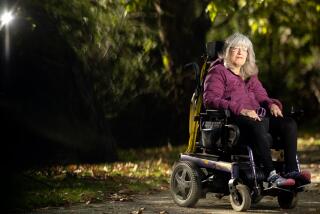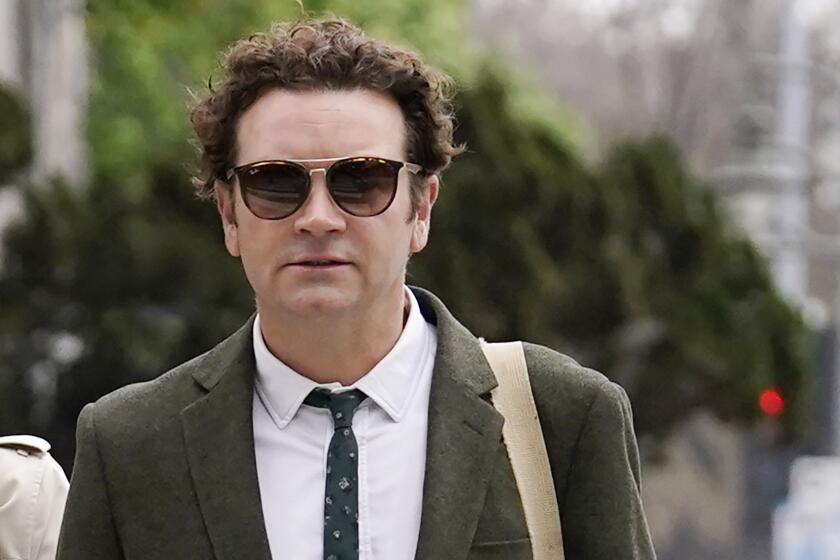Kaiser Slow to Move Patients
More than a month after Kaiser Permanente announced it was closing its troubled kidney transplant program serving Northern California, only a handful of its 2,000 patients have been officially transferred to programs at two University of California medical centers.
After promising last month that patients would be transferred swiftly and efficiently, state HMO regulators acknowledged Thursday that even the most basic parts of the process have proved unexpectedly complicated.
Since the closure was announced May 12, only one Kaiser patient has received a transplant at one of the university hospitals -- UC Davis -- and that person had a live donor ready and willing to give.
âWe have spent a considerable amount of time standardizing patient files between three independent healthcare systems,â said Kevin Donohue, deputy director of the California Department of Managed Health Care, which is overseeing the transition.
Donohue said that because the hospitals have different record-keeping methods, a standard format had to be created to ensure uniformity in the transferred records. That task slowed the process initially, but Donohue predicted it would accelerate in coming weeks.
Kaiserâs San Francisco-based transplant program is now transferring a minimum of 15 patient files a day to the UC hospitals, and that number will increase to 20 a day before the end of the month, Donohue said. At that point, the 114 patients identified as closest to receiving a transplant should be moved, he said.
Through Tuesday, however, Kaiser had sent the medical records of just 21 patients to UC San Francisco and 27 to UC Davis. Both hospitals already have begun seeing patients, whether or not they were transferred.
The medical records of the remaining patients on the waiting list will be moved in groups, based on how long they have been waiting for kidneys.
But because of rules governing transplantation, these patients will not be able to receive transplants of organs from deceased donors at one of the UC hospitals until their seniority on the kidney wait list is officially transferred by the United Network for Organ Sharing. The network is the federal contractor that oversees transplantation nationwide.
A UNOS spokesman said this week that âat least threeâ Kaiser patients have had their wait time officially transferred.
Donohue stressed that no patient would miss a chance at a kidney at any point in the process. Kaiserâs center will remain open and operating until every patient is transferred, he said.
On Thursday, Kaiser said it had appointed a new administrative director for its kidney program until patients can be transferred. Linda Mann, medical group administrator at Kaiser Permanente Redwood City Medical Center, served as manager of the kidney transplant program at UC San Francisco from 1980 to 1985.
Kaiser announced last month that it would close its transplant center after The Times detailed problems that arose after the giant HMO forced as many as 1,500 patients to move to the start-up program in 2004. The patients previously had been treated at UC San Francisco and UC Davis, both established transplant centers that were working under contract with Kaiser.
At Kaiserâs new center last year, twice as many people on the waiting list died as received kidneys. The statewide pattern for transplant centers was the reverse: Twice as many patients received kidneys as died.
Hundreds of patients were not properly transferred from their old programs to Kaiserâs, because the HMO submitted incomplete and inaccurate forms. Those patients were essentially cut off from transplants for months.
On Thursday, some Kaiser patients said they were comforted that so many officials were watching to make sure that doesnât happen again.
Still, a few said they werenât taking any chances.
Bonnie Fadavi, 47, said she called UC San Francisco after the problems with the Kaiser program were reported in the media. She has an appointment at the UC center July 18 to reevaluate her condition.
Just to be safe, Fadavi said she called Kaiser twice to alert them that her files needed to be transferred by that date.
On June 9, Simeon Trotter became the first of Kaiserâs patients to receive a transplant at an outside hospital when surgeons at UC Davis gave him a new kidney using an organ donated by a friend from his church.
Trotter, 28, said he had been on a kidney waiting list since 2002, first at UC San Francisco and then at Kaiser.
Officials at Kaiser didnât contact him for more than a year, he said, and only tested his living donor earlier this year after repeated phone calls.
âWe had to keep contacting them, saying, âWhat is happening? What are the test results?â â Trotter said.
Trotter, who lives in Dixon, near Davis, said UC Davis would have performed his transplant sooner, but the hospital had to wait several days to get his records from Kaiser. Trotter said he wrote a desperate letter to Kaiser, which he believes got the HMO to transfer his records.
Trotter was released from UC Davis on Wednesday. A day later, he said he was ready to get on with his recuperation.
âThe toughest part is behind me,â he said. âItâs definitely a relief.â
More to Read
Sign up for Essential California
The most important California stories and recommendations in your inbox every morning.
You may occasionally receive promotional content from the Los Angeles Times.










